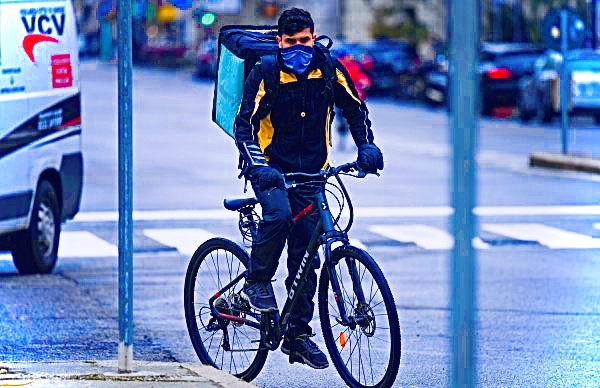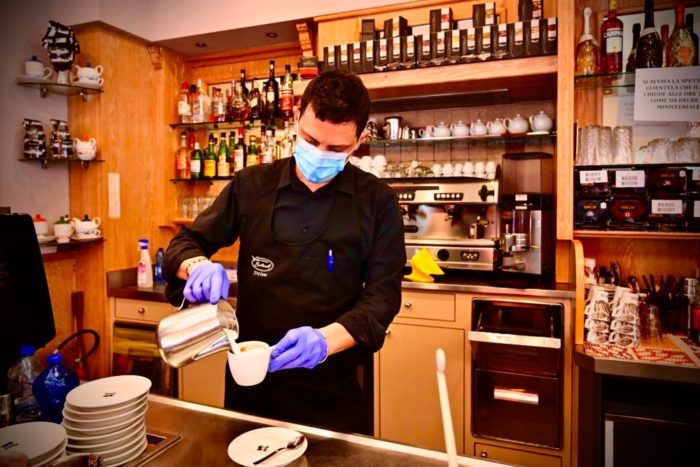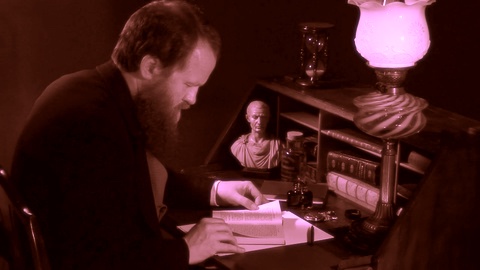A few days after 9/11, I returned to my restaurant job. I’d recently started working as a waiter at an upscale Italian restaurant in downtown Manhattan. The air was still musty and ripe with the aroma of burning jet fuel and smoldering steel. Yet, there we were. Serving people food for a profit.
This one particular night stands out in my memory because, shortly after the restaurant re-opened, we had a guest order a $500 bottle of Sassicaia. Under normal circumstances, it would’ve been cause for celebration. That night, however, given the backdrop of carnage and horror, it felt grotesque for someone to be so frivolous. First responders and emergency workers were still sifting through rubble at Ground Zero. The devastation we were experiencing all around us made it hard for our staff to muster warmth for the few guests we were tasked with serving.
We had a skeleton crew that night. The police and military had blockaded swaths of the city. Working with a leaner team meant that service might be less fluid than normal. We hoped that guests would be more forgiving under the circumstances, and most people were. But when the sommelier struggled to locate the bottle of Sassicaia for this table after ten or fifteen minutes, the guest who’d ordered it became irate.
The staff stood by in disbelief as the man reprimanded the sommelier for not having retrieved his wine sooner. Even though the city was crumbling just miles away—thousands of lives lost—this individual felt entitled to more expeditious service. We shut our mouths, swallowed our pride and took the high road. Even in times of crisis, we knew, that’s life in restaurants.
There is a figurative switch you have to throw when you serve people—everyone who’s ever taken an order in a restaurant understands this. Working in hospitality requires that you master control of that switch. You don’t get too many free passes in the restaurant industry, so you cannot allow that switch to short circuit.
As the COVID-19 pandemic spreads, waiters have become disposable, which in some ways is fortunate because it would be virtually impossible to act like everything is normal under the circumstances. How do we put on our “jazz hands” when we have to wash them every time we touch anything?? Income losses have been crippling for front of house staff, but many of our comrades in the back of house continue to prepare takeout food under the most adverse conditions for hungry patrons sheltered at home.
Long before Anthony Bourdain told us so, cooks have always been cut from a different cloth. They’re taught to put their noses down and fight through whatever challenges come their way. The new garde manger guy no-call, no-showed. The dishwashing machine just broke down. A food delivery arrived incomplete. Chefs don’t make excuses because no one will ever accept them. People want their food, and they want it now.
Some restaurants have little choice but to remain open in some limited capacity. A friend of mine who manages a new cafe in Sonoma told me that he’s stressed to the owners to focus on “the social capital” that can be earned by continuing to serve the community. “Local people are grateful that we’re here for them, and many have said they’re excited to come back when life returns to normal.”

The way that some restaurants have adapted to the challenges of the crisis exemplifies the resourcefulness of our industry leaders. One can’t help but be inspired by the way that some independent restaurants like Addo in Seattle have transformed their full-service business into a grocery-takeout-delivery hybrid model, including offering subscription services to generate more consistent revenue. Addo’s chef and owner Eric Rivera is finding ways to keep his staff on the payroll while also extending health benefits to protect its welfare.
Nick Kokonas and his Chicago-based restaurant group that includes Next and Alinea are deploying technologies using Tock, their proprietary ticketing system, in innovative ways—streamlining kitchen operations to sell comfort food delivered at a fraction of their normal prix fixe prices. Like Chef Rivera, Mr. Kokonas and his partners have been able to recall a quarter of their furloughed staff with plans to take back more as they grow their takeout business.
But these triumphs don’t feel as triumphant as they should. It seems unfair to ask restaurants to “cook their way out” of this crisis. People are dying by the tens of thousands worldwide from the Coronavirus, and we shouldn’t have to put our workforce in harm’s way while the rest of society—save healthcare professionals—hermetically seals itself in a sanitized bubble. The most vulnerable among us are the poor and immigrant populations. Many of the faceless people cooking and delivering your food are undocumented, a population that has been systematically forsaken by our directionless immigration policies.
Quarantined people, many confronted with their own lack of cooking skills, must learn to manage their hormonal cravings for restaurant food. Instead, they just absolutely have to have that dish they love so much from such-and-such trendy restaurant, and ‘thank god they’re finally on Uber Eats now.’ Everyone’s patting themselves on the back for supporting local businesses, as if their twenty dollar delivery will even come close to stemming the tide for these ailing businesses.
Meanwhile most of these exposed restaurant workers are uninsured and paid wages that wouldn’t cover a tiny fraction of the medical expenses they would incur if they contracted the virus. How can restaurant owners expect these people to work without providing proper health insurance during one of the worst pandemic crises in human history? All the GoFundMes in the world can’t cover the potential catastrophic medical expenses that might result from exposing so many of these uninsured restaurant workers to infection. At best, those funds will be like providing boxes of band-aids to hundreds of thousands of restaurant workers that are bleeding to death.
If we’ve learned anything from the COVID-19 crisis it’s that restaurants are essential to our cities’ lifeblood. If you live in any metropolitan area, you can feel its arteries hardening. Our social behaviors are so intertwined with our restaurant communities. Without them, we have no place to root for our local teams, to meet Tinder dates, to impress clientele or to feed our Instagram. Let’s treat them that way and leverage the maximum power of the public purse to provide the necessary triage in these unprecedented times.
The reality is that restaurants have mutated into a perverse playground for affluent people to display privilege at the expense of underpaid labor. This crisis is exposing that lob-sided power dynamic in an unsettling way with images of delivery workers crowding the streets waiting to deliver high end cuisine to quarantined people in the wealthiest zip codes. Hospitality can be a noble pursuit, but what is noble about poor people risking their lives to deliver fully packaged tasting menus to the least needy people in our society? It should be the other way around.
If we expect our restaurant soldiers to keep fighting for a cause they believe in, we should follow the lead of great chefs like Jose Andrés, who continues to mobilize his non-profit restaurant armada, The World Central Kitchen, for charitable causes by providing hot meals to the parts of the world that are suffering. Chef Andrés’ mission elevates the work of chefs and hospitality professionals by leading with compassion—not by the need to cater to the whims of rich people—and by demonstrating that the restaurant industry doesn’t just exist to sell us food. Restaurants are pillars of our community. They need our help when calamity strikes, and we must find ways of protecting them that go beyond simple patronage.



